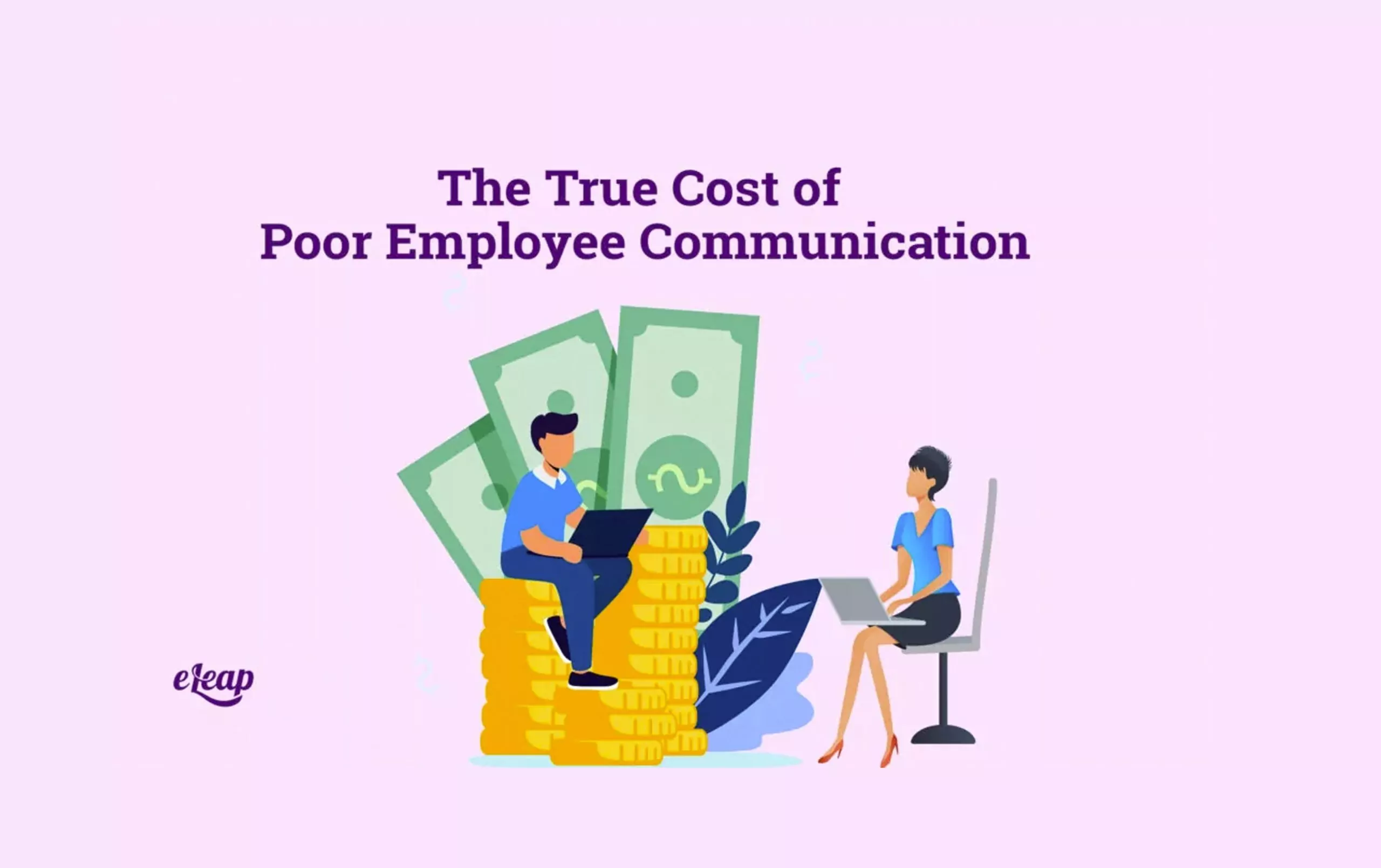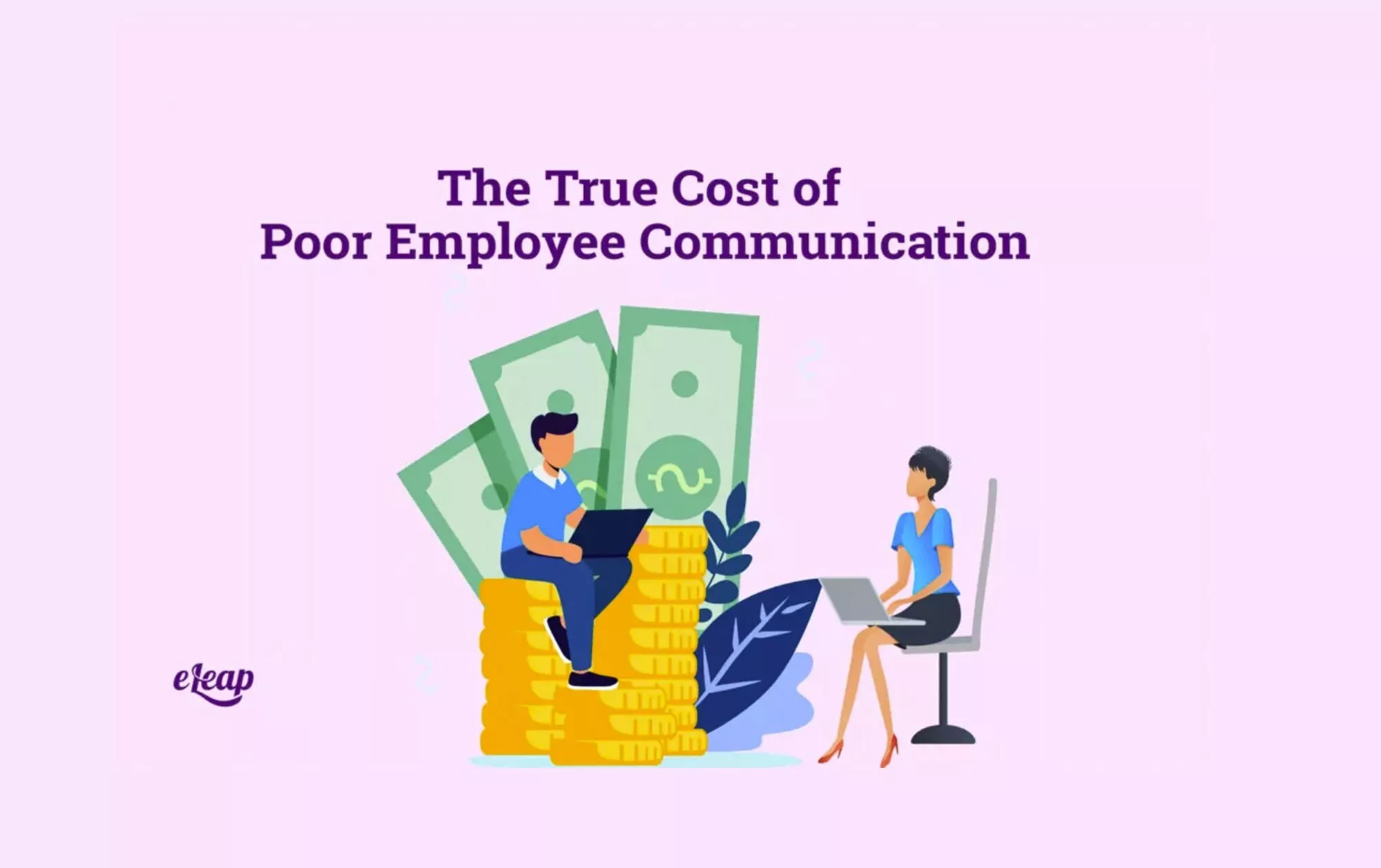The True Cost of Poor Employee Communication

Gone are the days when organizations and leaders simply demanded that their employees complete the work expected of them. In our contemporary work society, open lines of communication between employees and leaders are a must if an organization wants to be successful. Without good communication, an organization can quickly go up in flames.

It’s critical to consider the high cost of poor employee communication when deciding whether or not to implement an internal communication channel. Every successful relationship is built on great communication. The workplace is no exception. Communication between leaders and employees needs to be stellar.
If the importance of internal communication still isn’t hitting home, then you probably don’t realize the damage that ineffective communication can have on an organization. We live in an age when communication methods have been enhanced to a point where we expect them all the time. Thanks to search engines and social media, people expect information to be available when they need it rather than searching for it. An employee’s experience will be poor without effective internal communication. This is particularly true as the Millennial generation starts to become the dominant segment of today’s workforce. Why? Because Millennials have grown up with exposure to consistent, easy access to information and the ability to communicate effortlessly using technology.
If you notice that your employees lack knowledge about your organization’s vision or that they spend a lot of their time tracking down information that’s needed to do their job, it’s a sign of a communication problem. Your organization can suffer from ineffective employee communication, which means it’s something that shouldn’t be overlooked. Here, we will go over some key points that indicate whether your organization should work on its internal communication and what it might cost if it doesn’t improve.
Lower Customer Retention Rates
When communication is poor in the workplace, employees begin to keep their opinions and knowledge to themselves. This may not seem like an immediate problem, but it can actually lead to lower customer retention rates. Consider instances where client feedback or a key project deadline isn’t effectively communicated amongst a team. The risk of losing information or key criteria between employees or entire departments is much higher when employees do not communicate effectively, resulting in letting down clients or missing deadlines because the information is never shared.
All in all, poor communication by employees has a very negative impact on customer service. Employees who don’t feel engaged at work and don’t have adequate means by which to communicate with one another fail to provide high-quality customer service.
Wasting Time Searching for Information
These days, our lives revolve around the instantaneous flow of information. Your employees find it difficult to find the data they need when you fail to share the right information at the right time or when you overwhelm them with too much information all at once. What’s more, think of all the times your employees have waste time searching through emails or scouring files just to access a piece of information that they should easily have had on hand.
The average office employee spends approximately 2.5 hours per day searching for information. What does this mean? Well, in short, poor employee communication is leading to information searches that are costing your organization money. For large organizations with numerous employees, this time wasted could add up to millions of dollars annually.
Poor communication means information isn’t shared efficiently. Not only does this lead to individual employees spending time searching, but it often leads to long, tedious meetings that go around in circles. Such meetings could be entirely avoidable if internal, cross-employee communication lines were more efficient.
Reduced Employee Productivity
Effective employee communication leads to better collaboration and teamwork among team members. A culture of open communication serves to build mutual trust, speed up work, and ultimately increase productivity.
Engagement at work is closely connected with productivity and the quality of work being produced. For engagement levels to be high, it’s imperative that employees feel connected to the organization internally. In order for this connectivity to occur, communication needs to be in order. This is of particular concern for organizations that have a high number of remote workers. In such cases, open and effective lines of communication are even more imperative. Without them, remote workers can easily feel as though they aren’t part of the organization, and engagement and productivity levels can plummet as a result.
Poor Corporate Culture
Poor culture is an organization killer. The motivation and morale of employees can all too quickly go downhill when an organization suffers from poor internal communication. In the absence of effective communication techniques, leaders may quickly lose employee trust, lowering morale and reducing engagement. Disengaged and unhappy employees who are victims of poor corporate culture will very likely quit.
You’ll be paying a huge price if your employees feel that there’s no effective communication within your company or if your workplace lacks efficient collaboration. Yes, poor company culture is expensive. Having to hire, onboard, and train a new employee every time one quits gets very expensive very quickly.
Once again, as the Millennial generation begins to make up the majority of today’s workforce, good company culture becomes even more critical. For Millennials, working in an organization with a strong corporate culture is highly important. In fact, a huge number of employees who fall into this age demographic actually choose their jobs based on culture rather than salary or benefits. You may face critical talent attraction and retention challenges if you don’t invest in building a great company culture, part of which requires an emphasis on fostering effective internal communications.
A poorly communicating company reduces productivity, decreases customer retention, and increases employee turnover. At the end of the day, poor communication could end up costing your organization a lot of money. Emphasizing and developing good internal communications is critical if you want your organization to run as smoothly as possible.